November 2023
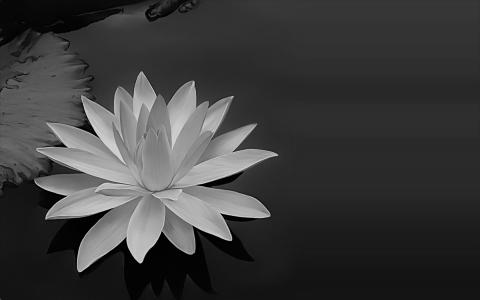
वैदिक काल
पौराणिक आख्यान है[1] कि धननंद के शासन के साथ नदंसाम्राज्य के अंत के उपरांत इस धरा पर कोई क्षत्रिय नही रहा[2]। यह कहा गया कि जन्म से कोई क्षत्रिय नही बचा और जो बचे थे वे अन्य वर्ण के थे। यह अभिमत मान्य हो सकता है यदि हम ‘क्षत्रिय’ नामक चारित्रिक गुण को केवल वंश परम्परा में जन्म लेने से समझते हैं। नंद राजाओं से बहुत पहले महाभारत के अजगरोपाख्यान[3] में युधिष्ठिर का कथन है –
“यह नहीं कहा जा सकता कि कोई भी वर्ण पूर्णतः शुद्ध और विशिष्ट है...
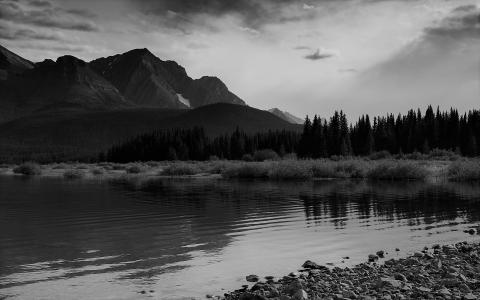
asaktabuddhiḥ sarvatra jitātmā vigataspṛhaḥ |
naiṣkarmyasiddhiṃ paramāṃ saṃnyāsenādhigacchati ||
BG 18.49
The word naiṣkarmya is used repeatedly in the śāstras. It refers to a state of absence of pāpa when there is no activity being performed - a state without anxiety, a state of pure knowledge. For those in this state, karma is not a bondage. It is not that they do not perform karma; but that karma does not bind them anymore. Such people...
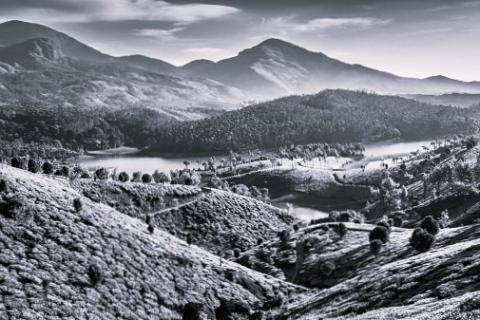
ಪೈಗಳ ಕವಿತೆಯಲ್ಲಿ ಭಕ್ತಿಯ ಮತ್ತೊಂದು ಆಯಾಮವಾದ ಹೃದಯವಿಸ್ತಾರ, ಆತ್ಮನಿವೇದನೆ ಮತ್ತು ಭೂತಾನುಕಂಪೆಗಳನ್ನು ಕೂಡ ಗಮನಿಸಬಹುದು. ಅವರು ಮೇಲ್ನೋಟಕ್ಕೆ ಜಿಗುಟಾದ ಅಭಿಪ್ರಾಯಗಳನ್ನು ಹೊಂದಿದ ನಿರ್ಭೀತ ವಿದ್ವಾಂಸರೆಂದು ತೋರಿದರೂ ಅಂತರಂಗದಲ್ಲಿ ಅವರದು ಸಮಾರ್ದ್ರ ಮನಸ್ಸು. ಹೀಗಾಗಿ ಜಗತ್ತಿನಲ್ಲಿ ಎಲ್ಲಿ ನೋವು ಕಂಡರೂ ಎಲ್ಲಿ ಕಷ್ಟ ಕೆರಳಿದರೂ ಅವರ ಹೃದಯ ಕರಗುತ್ತದೆ, ಅವರ ಮನಸ್ಸು ಮರುಗುತ್ತದೆ. ಇದಕ್ಕೆ ಸಾಕ್ಷಿಯಾಗಿ ಹಲವು ಕವಿತೆಗಳಿವೆ. ತುರ್ಕಿಯ ಪರವಾಗಿ ಅವರು ಮಾಡಿದ ಪ್ರಾರ್ಥನೆಯನ್ನು ಈಗಾಗಲೇ ನೋಡಿದ್ದೇವೆ. ‘ಹೊಲೆಯನು ಯಾರು?’ (ಪು. ೧೬) ಎಂಬ ಕವಿತೆಯಲ್ಲಿ...
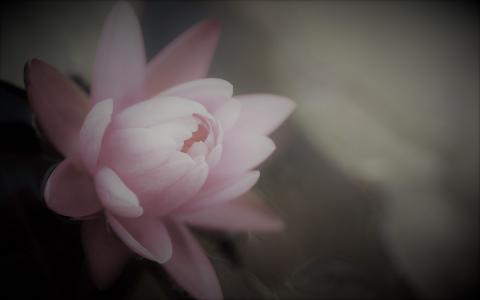
ವಸ್ತು
ಎಸ್. ಶಿವಾಜಿ ಜೋಯಿಸ್ ಅವರು ಸಂಪಾದಿಸಿಕೊಟ್ಟಿರುವ ಗೋವಿಂದ ಪೈಗಳ ಸಮಗ್ರ ಕವಿತೆಗಳ ಪ್ರಸ್ತಾವನೆಯನ್ನು ಕಂಡಾಗ ಅಲ್ಲಿ ಸುಮಾರು ನೂರೆಂಬತ್ತು ಕವಿತೆಗಳು ಅಡಕವಾಗಿವೆಯೆಂದು ತಿಳಿಯುತ್ತದೆ; ಇವಲ್ಲದೆ ಮತ್ತೂ ಒಂಬತ್ತು ಅನುಪಲಬ್ಧ ಕವಿತೆಗಳಿದ್ದಂತೆಯೂ ತಿಳಿಯುತ್ತದೆ.[1] ಸದ್ಯದ ಅಧ್ಯಯನವು ಪೂರ್ವೋಕ್ತ ಸಂಗ್ರಹವನ್ನಲ್ಲದೆ ‘ಹೆಬ್ಬೆರಳು’ ಎಂಬ ಏಕಾಂಕನಾಟಕವನ್ನೂ ಸೇರಿಸಿಕೊಂಡಿದೆ. ಇದಕ್ಕೆ ಕಾರಣ ಈ ರೂಪಕದ ಸಂಪೂರ್ಣ ಪದ್ಯಾತ್ಮಕತೆಯೇ. ಆದರೆ ಈ ಅವಲೋಕನದಲ್ಲಿ ಪೈಗಳು ಮಾಡಿದ ಗೀತಾಂಜಲಿಯ ಗದ್ಯಾನುವಾದವಾಗಲಿ, ಅವರ ಇಂಗ್ಲಿಷ್ ಮತ್ತು ಕೊಂಕಣಿ ಕವನಗಳಾಗಲಿ...

Rāma was delighted hearing Hanūmān’s faithful account of the events in Laṅkā. He said, “Hanūmān has executed the tremendous task entrusted to him by his master, Sugrīva. He has saved all of us – the Raghuvaṃśa, Lakṣmaṇa, and myself – by finding Sītā. What pains me is my inability to gift him the kind of joy he has just given me. Let this embrace, which is the only wealth I possess now, stand for the gift of my own Self to this noble Hanūmān....

श्री कृष्ण
श्री कृष्ण को ब्राह्म-क्षात्र समन्वय का सर्वोत्त्कृष्ठ अनुकरणीय प्रतीक माना जा सकता है। उनके पूर्व प्रत्येक आदर्श का प्रतिनिधित्त्व भिन्न भिन्न व्यक्त्तियों द्वारा किया गया था। कृष्ण अकेले ऐसे हैं जिनमें ब्राह्म तथा क्षात्र की श्रेष्ठता चरम पराकाष्ठा प्राप्त करती है। शायद यही कारण है कि भारतीय परम्परा में उन्हें ‘जगद्गुरु’ और ‘पूर्णावतार’ के रुप में पूजा जाता है।
कृष्ण का बाल्यकाल गोकुल में नंद और यशोदा के सानिध्य में बीता जो साधारण...

Qualities like truth and purity are not the special property of brahmins. They are to be practised by others as well. Why did we specially mention them as brahmaṇic qualities? The real meaning is that an excellent, exemplary brāhmaṇa behaves thus, and these qualities are easily practised by him; therefore other varṇas should also try to emulate him and earn those qualities — this is the real meaning.
ṣve sve karmaṇyabhirataḥ saṃsiddhiṃ labhate...
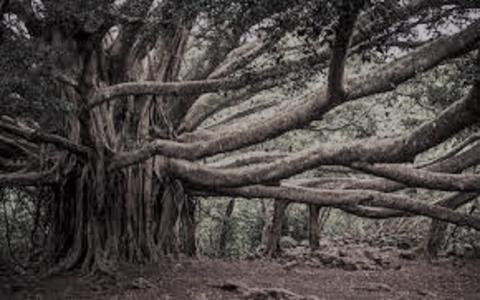
ನಮ್ಮ ಪ್ರಾಚೀನ ಸಾಹಿತ್ಯದಲ್ಲಿ ದ್ರುತವಿಲಂಬಿತವೃತ್ತದ ಅತ್ಯಧಿಕ ಪ್ರಯೋಗವನ್ನು ‘ಕವಿರಾಜಮಾರ್ಗ’ದಲ್ಲಿ ಕಾಣಬಹುದು. ಅಲ್ಲಿ ಒಟ್ಟಾರೆ ಹತ್ತು ಪದ್ಯಗಳು ಈ ವೃತ್ತದಲ್ಲಿ ನಿಬದ್ಧವಾಗಿವೆ. ಇವಲ್ಲದೆ ಇಲ್ಲಿ ಬಳಕೆಗೊಂಡ ಹಲವು ಅಪೂರ್ವ ಬಂಧಗಳ ಪೈಕಿ ‘ವೀರ’, ‘ಮಣಿಭೂಷಣ’ ಮತ್ತು ‘ಮಂಗಳ’ ಎಂಬವು ದ್ರುತವಿಲಂಬಿತವೃತ್ತವನ್ನು ಅತಿಶಯವಾಗಿ ಹೋಲುತ್ತವೆ. ಕವಿರಾಜಮಾರ್ಗವು ಉಪಲಬ್ಧ ಕನ್ನಡಗ್ರಂಥಗಳ ಪೈಕಿ ಅತ್ಯಂತ ಪ್ರಾಚೀನವಾದುದು ಮಾತ್ರವಲ್ಲದೆ ಕಾವ್ಯಲಕ್ಷಣಗ್ರಂಥವೂ ಆಗಿರುವ ಕಾರಣ ಇಲ್ಲಿ ಬಳಕೆಗೊಂಡ ಕೆಲವು ವೃತ್ತಗಳು ಹೆಚ್ಚಿನ ವಿವೇಚನೆಗೆ ಅರ್ಹವಾಗಿವೆ. ಅಲ್ಲದೆ ‘...

The Nature of Sanskrit Drama
The word nāṭya originates from the dhātu naṭ, which happens to be a prākṛt form of the dhātu nṛt. Both the root words mean to ‘dance.’ Thus, the words nṛtta, nṛtya, nāṭya, and nāṭaka originate from the same root which means ‘to dance.’ Accordingly, all of them have elements connected with dance. Nevertheless, there are quite a few differences between them.
Nṛtta refers to pure dance that is set to laya or to a...

Hanūmān flew through the sky which resembled the ocean in all its features. He entered and reemerged from the mass of clouds and resembled the moon, which is alternately hidden and revealed. He stroked the king of mountains, Sunābha (Maināka) with his hand and flew like an arrow shot from a bow. As he spotted the Mount Mahendra, he roared and it was heard by the vānaras who were waiting eagerly for him. Jāmbavān understood from Hanūmān’s joyous...
